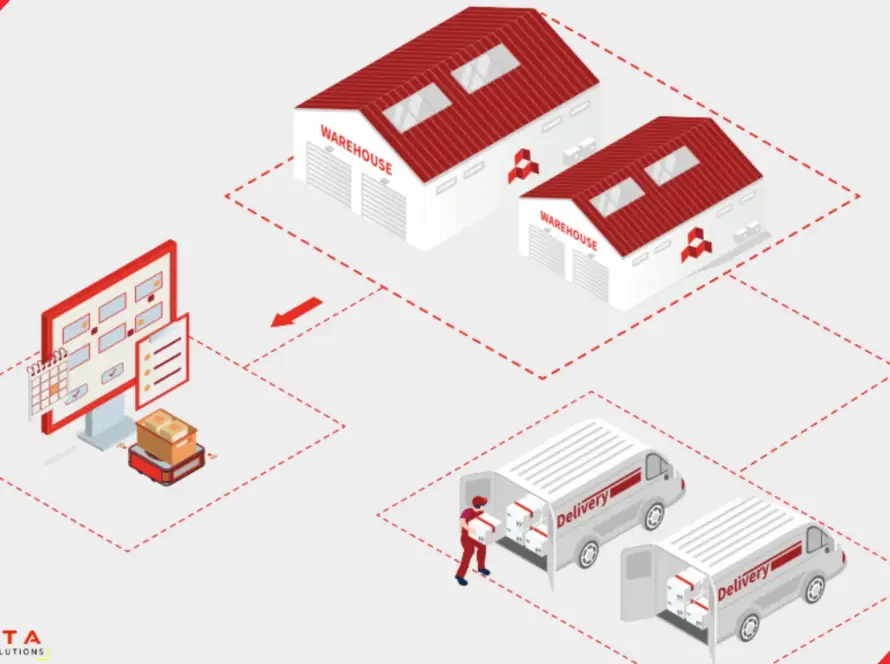Benefits of Logistics Hubs
Efficient logistics is built on precision, speed, and control — and logistics hubs make that possible. Acting as centralized points for storage, sorting, and distribution, they connect production and consumption through integrated transport networks. A well-designed logistics hub improves route efficiency, reduces transit delays, and enhances visibility across global supply chains.
In an environment where speed and reliability define competitiveness, logistics hubs have become critical infrastructure for optimizing costs, improving fulfillment, and sustaining long-term operational agility.

1. Streamlined Transportation and Network Efficiency
A logistics hub centralizes inbound and outbound goods flows, ensuring that shipments move efficiently across the supply chain. This reduces delays, lowers handling costs, and integrates multiple modes of transportation seamlessly.
- Centralizes inbound and outbound flows.
- Consolidates shipments to reduce empty miles and handling time.
- Optimizes multimodal transport (road, rail, air, sea) for faster, more reliable deliveries.
- AI-based route planning helps avoid delays and improve predictability.
By streamlining transportation, logistics hubs improve both speed and reliability across global supply chains.
2. Cost Optimization and Resource Utilization
Centralized hubs allow companies to achieve significant cost savings by consolidating operations and resources. Efficient utilization of labor, equipment, and space reduces overhead and enhances profitability.
Achieves economies of scale in storage, labor, and equipment usage.
Consolidates freight to lower per-unit transport costs.
Reduces duplicate handling and overhead through centralized operations.
Predictive data analytics optimize stock placement and labor allocation.
This cost optimization ensures that businesses can maintain competitiveness while improving operational efficiency.
3. Advanced Inventory Management and Visibility
Modern logistics hubs leverage technology to provide real-time insight into inventory, orders, and stock movements. This transparency allows businesses to respond quickly to changing demand and minimize errors.
Reduces stockouts, overstocking, and holding costs.
Enables data-driven allocation to match regional demand.
Supports proactive decision-making and agile operations.
Enhanced visibility ensures better inventory control and smarter supply chain decisions.
4. Faster Order Fulfillment and Customer Responsiveness
By storing inventory closer to key markets and streamlining operations, logistics hubs enable faster order processing and delivery, improving customer satisfaction.
Inventory stored close to key markets for shorter delivery times.
Consolidates picking, packing, and sorting under one roof.
Improves accuracy and reduces errors.
Supports time-sensitive deliveries in eCommerce, healthcare, and retail.
Faster fulfillment helps businesses meet rising customer expectations and maintain a competitive edge.
5. Scalability and Global Expansion
Logistics hubs are designed for flexibility, allowing companies to scale operations as demand grows or market coverage expands.
Modular design allows capacity expansion without disrupting operations.
Supports seasonal surges and demand spikes.
Provides access to multimodal transport and regional distribution channels.
Enables rapid entry into new markets with minimal capital investment.
This scalability ensures that businesses can grow efficiently without compromising service quality.
6. Sustainability and Green Logistics
Logistics hubs support eco-friendly practices by consolidating shipments, optimizing routes, and integrating energy-efficient systems.
Reduces carbon footprint by consolidating shipments and optimizing routes.
Integrates renewable energy, EV fleets, and energy-efficient systems.
Minimizes packaging waste and supports circular logistics.
Aligns operations with global sustainability and regulatory goals.
By promoting sustainability, logistics hubs help companies reduce environmental impact while maintaining operational efficiency.

Conclusion
The importance of logistics hubs in global supply chains extends far beyond storage and transportation. They are dynamic control centers that integrate technology, efficiency, and sustainability.
From improving network efficiency and inventory management to reducing costs and supporting global expansion, logistics hubs empower businesses to operate faster, leaner, and smarter. Companies that invest in strategically located, technologically advanced logistics hubs gain resilience, scalability, and competitive advantage, positioning themselves for long-term success in a globalized economy.
Thanks For Reading: Top 6 Benefits of Logistics Hubs
Powered By 360Presence

